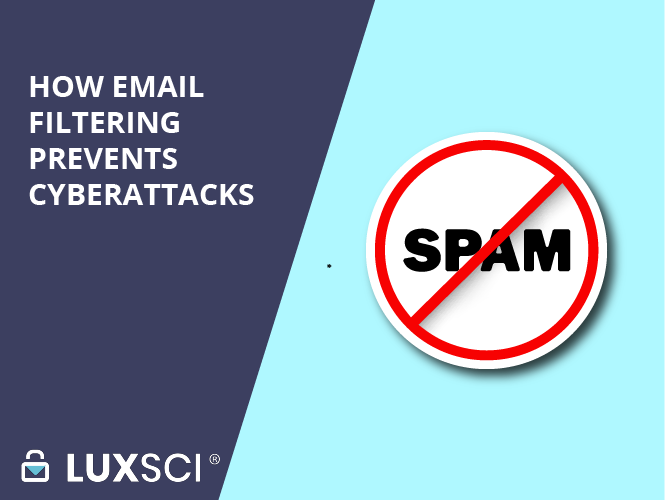Almost every business uses email as a primary communication channel, and as a result, it is a major attack vector for cybercriminals. Every employee’s email account represents a possible risk to your business operations. One way to protect employee accounts is with email filtering tools.
The Risks of Email Communications
Email is a necessary business communication tool. However, it also introduces significant risks. A 2019 HIMSS survey found that 70% of breaches originated with a phishing email. It’s unrealistic to stop people from using email, so the next best step is protecting accounts and reducing risk.
Social Engineering Risks
The number one threat to any cybersecurity program is human error. Phishing campaigns are so successful because they prey on human vulnerabilities. Everyone makes mistakes. Even the most cautious people can be caught up in a busy day and accidentally click on a malicious link without adequately vetting the sender.
By stopping these malicious emails from entering the employee’s inbox, there is no chance they will mistakenly click on them. Although phishing training is still essential in case emails get through the system, a good email filtering service will stop most suspicious messages.
What is Email Filtering?
Email filtering tools prevent malicious messages like spam from reaching inboxes. Filtering tools scan the incoming emails for signs of cybercrime- these could include bad links, content used by known spammers, or other indicators. Email filtering stops suspicious emails from being delivered to the intended recipient.
How Email Filtering Works to Stop Spam
There are many ways to filter emails, some of which are more restrictive than others. Every email filtering service is different, so we are speaking in generalities for informative purposes. However, the process works the same way. All incoming emails are scanned to see if they contain any information that violates the filter settings. Traditionally, the filter scans both the email header and the message contents.
The email header contains information about the sender, including their IP address, email domain, sending address, security signatures, and other technical information about how and when the email was sent. Email filters will flag messages sent from suspicious senders and known spammers. Email filters can be so restrictive as to entirely stop incoming emails from external organizations or domains.
Filtering systems also scan email message contents. Phishing schemes rely on unsuspecting users clicking on links to install malware on a user’s computer. Email filtering systems can scan and remove links to known suspicious websites. Organizations can go further and configure their filtering systems to remove all links in emails. This may be too restrictive for some, but it is an option for some filtering tools. In addition, scanners can flag emails for spammy content. Some commonly flagged messages include overly promotional marketing emails, messages with adult themes, and those that mention illegal activities.
Once the suspicious emails are flagged, then what happens? The settings are often configurable. Some email filtering systems add a banner to the top of scanned messages that alerts the user to any risky-seeming content. However, once users are accustomed to seeing it, they may ignore or not notice the warnings.
The most common solution is to divert flagged emails to quarantine. There, users can review the messages to determine if they are spam or not. Sometimes unsuspecting messages get caught up in filters, and this gives the intended recipient a chance to retrieve wanted messages. For extremely conservative organizations, the system can automatically delete flagged messages and never deliver them to the inbox out of an abundance of caution.
Conclusion
Everyone should be concerned about the rise of cyberattacks and the potential risks to their businesses. Use an email provider that offers sophisticated email filtering services. LuxSci’s Premium Email Filtering is an available add-on to our Secure Email Hosting and Secure Connector solutions.

